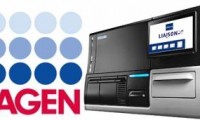-
Capital Rx, Prime Therapeutics Form Strategic Alliance
- Source: drugdu
- 121
- March 25, 2024
-
【EXPERT Q&A】What is temporary mining of medical consumables?
- Source: drugdu
- 166
- March 20, 2024
-
Novartis Pays $90M for Molecules That Could Take STING Out of Inflammation
- Source: drugdu
- 158
- March 15, 2024
-
How Marketing Fueled the Opioid Overdose Crisis and What We Can Learn From It
- Source: drugdu
- 121
- March 12, 2024
-
Automated Multiplexing Molecular Diagnostic Platform Revolutionizes Infectious Disease Diagnostics
- Source: drugdu
- 142
- March 8, 2024
-
AstraZeneca’s “CD19/CD3 dual antibody” receives clinical approval in China
- Source: drugdu
- 98
- March 2, 2024
-
Pfizer’s Velsipity granted EC approval for ulcerative colitis in patients aged from 16 years
- Source: drugdu
- 110
- February 23, 2024
-
Yet another clinical hold for Gilead’s magrolimab trials
- Source: drugdu
- 157
- February 21, 2024
-
Smiths Medical recalls syringe pumps for software malfunction
- Source: drugdu
- 135
- February 17, 2024
-
Smiths Medical recalls syringe pumps for software malfunction
- Source: drugdu
- 189
- February 17, 2024
your submission has already been received.
OK
Subscribe
Please enter a valid Email address!
Submit
The most relevant industry news & insight will be sent to you every two weeks.













